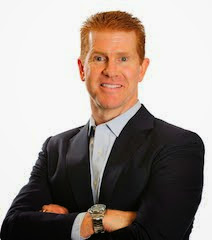Many people believe that because they can talk, they can
communicate with others. Or they think that because they have the gift of gab,
because they have no problem talking to others on any subject that comes to
mind, they’re good communicators. Often, exactly the opposite is true. The
ability to talk is not the same as the ability to communicate.
Probably 99 percent of all the difficulties between human
beings, and within organizations, are caused by breakdowns in the communication
process. Either the senders do not say what they mean clearly enough, or the
receivers do not receive the message in the form in which it was intended.
You’ve heard the saying that God gave man two ears and one
mouth, and in conversation, you should use them in those proportions. Truer
words were never spoken. The best communicators are excellent listeners. The
worst communicators are continuous talkers.
All master communicators have learned to be comfortable with
silence. Remember that a person can absorb only a certain amount of
information, as ground can absorb only a certain amount of water. If you pour
too much water onto the ground, it will form into puddles instead of soak in. A
person’s mind is very much the same. If you don’t give someone an opportunity
to absorb what you’re saying, by pausing and waiting quietly and patiently, he
will be overwhelmed by the continuous stream of thoughts and ideas.
One of the most vital requirements for effective
communication, especially with important messages, is preparation. Preparation
is the mark of the true professional. The late Coach Paul “Bear” Bryant of the
University of Alabama football team was famous for saying, “It’s not the will
to win but the will to prepare to win that counts.” In all communications, the
will to prepare in advance of talking and interacting with people is the key to
achieving maximum effectiveness.
The best communicators do not use a lot of words, but they
choose their words carefully, in advance. People appreciate straight talking. Avoid
the tendency to dress up your message and sugarcoat it. When you have a
question or a concern, or you want something, come right out and say it without
confusion or distortion. You’ll be amazed at how much better you feel and how
much more positively someone will respond to your message.
The ability to communicate is a skill that you can learn by
becoming genuinely interested in people and by putting their needs ahead of
your own when sending a message or asking them to do something for you. When
you concentrate your attention on building trust, on the one hand, and on
seeking to understand, on the other hand, you’ll become known and respected as
an effective communicator everywhere you go.
“Getting Your Ideas Across” from Brian Tracy.













